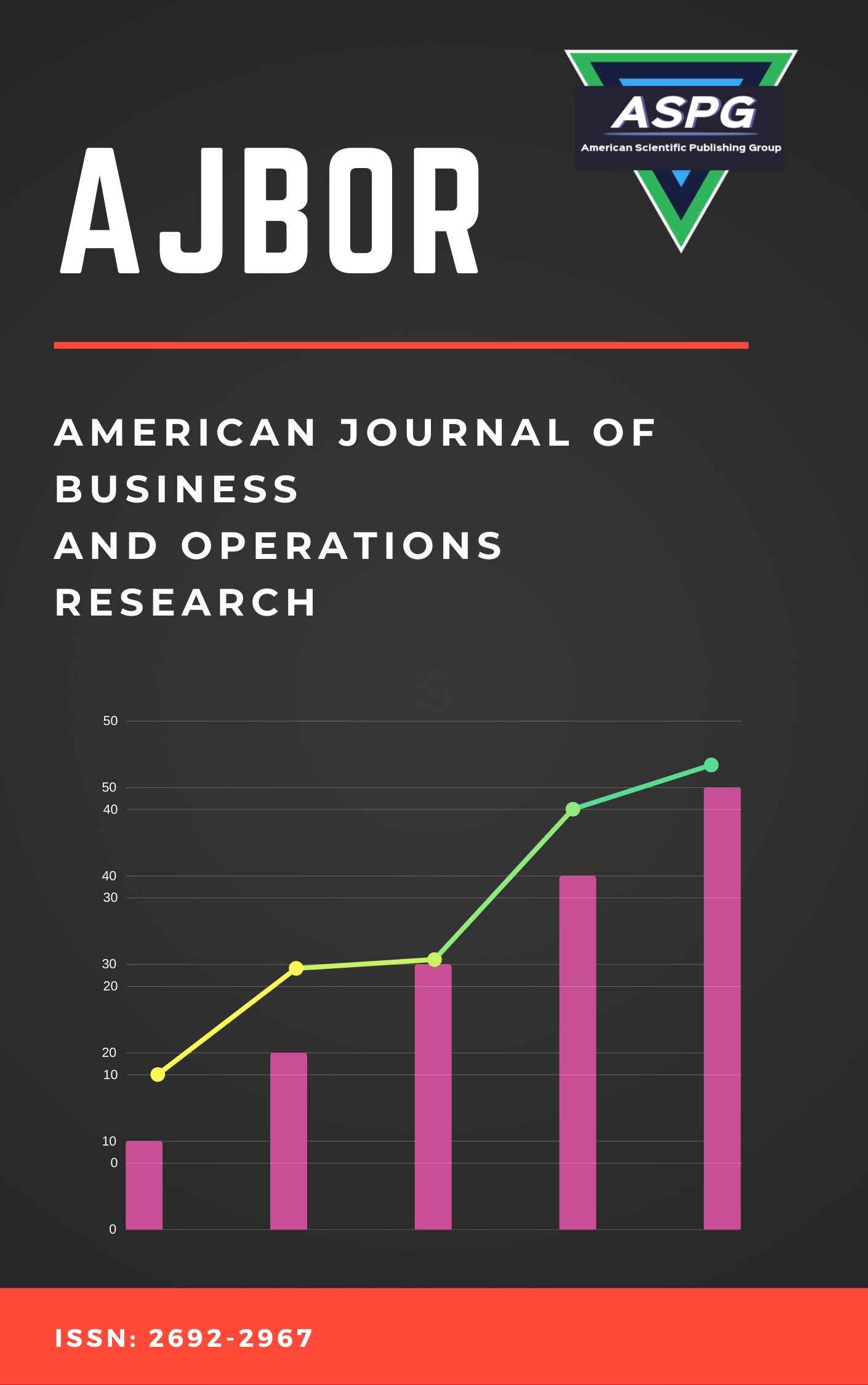

Volume 9 , Issue 1 , PP: 33-46, 2023 | Cite this article as | XML | Html | PDF | Full Length Article
Ulugbek Kubayev 1 * , Akram Ishnazarov 2
Doi: https://doi.org/10.54216/AJBOR.090104
Blockchain is a distributed data storage technology that includes information about all transactions of system participants in the form of a "blockchain". Blockchain offers a reliable way to perform processes, ensures stable performance, eliminates the possibility of data duplication, and reduces costs. The promising technology is rapidly gaining popularity and is being implemented in various fields, including business process management. However, even though blockchain technology has been around for several years, many business leaders are still not familiar with it because there is very little information and blockchain technology has not yet been widely used in enterprise infrastructure. Therefore, blockchain technology for business process management remains a hot topic, and the significant advantages of blockchain technology in improving business efficiency cannot be ignored. Thus, this article discusses the main features of using blockchain technology in the management of business processes in the digital economy. Also, the main advantages and disadvantages of technology implementation are presented, problems that business leaders may face are considered. In addition, the important aspects of the use of blockchain technology in the management of business processes in the digital economy are analyzed.
Digital economy , blockchain, business process management , financial instruments , electronic documents , execution logic , BPM , Deviation Method.
[1] Law of the Republic of Uzbekistan “On Amendments and Additions to the Law of the Republic of Uzbekistan “On Electronic Commerce” dated May 22, 2015 No. UzRL-385
[2] The Law of the Republic of Uzbekistan “On electronic payments”. Adopted by the Legislative Chamber on November 2, 2005, approved by the Senate on December 3, 2005.
[3] Annie Mike. “Towards an ethics of convocation, observation, credibility and timeliness.” 2015. Science, Technology, and Human Values 41 (1): 93–117.
[4] Atsori M. “Blockchain technology and decentralized management: is the state still necessary?”, 2015. (http://papers.ssrn.com/sol3/Papers.cfm?abstract_id=2709713).
[5] Dong Hye et al. “Virtual Currencies and Beyond: Initial Considerations,” 2016. Washington, D. S.: International Monetary Fund.
[6] “Blockchains: A Big Chain of Confidence in Things,” Economist. October 31, 2015 “The technology underlying bitcoins allows people who do not know or do not trust each other to create a reliable ledger. it has consequences far beyond cryptocurrency”.
[7] M. Hammer, J. Champy, Reengineering the Corporation: A Manifesto for Business Revolution (Harper Business, 2001)
[8] E.G.Oikhman, E.V.Popov Business reengineering: organization reengineering and information technology. –M. Finance and statistics, 1997.-336 p.p.
[9] Davenport, T.H. and Short, J.E. (1990) The New Industrial Engineering: Information Technology and Business Process Redesign. Sloan Management Review, 31, 11-27.
[10] H. Smith and P. Fingar, “Business Process Management, the Third Wave: The Breakthrough That Redefines Competitive Advantage for the Next Fifty Years,” Meghan- Kiffer Press, New York, 2006.
[11] Morris David Z. "A venture fund without blockchains based on a blockchain attracts $ 100 million and counts." Fortune. Source May 23, 2016.
[12] Brito Jerry, Castillo Andrea. Bitcoin: a textbook for politicians. Fairfax, VA: Mercatus Center, George Mason University. October 22, 2013.
[13] http: //www.reglament.net/bank/raschet/2005_4_article.htm
[14] http://www.it.ru/press_center/publications/3818/